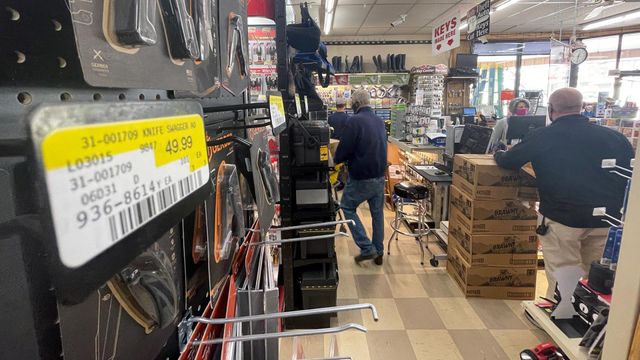Inflation hits businesses' bottom lines as they struggle with whether to pass higher costs to customers
Rising costs are hitting business owners as much as consumers, according to the latest CFO Survey, produced by Duke University's Fuqua School of Business and the Federal Reserve banks in Atlanta and Richmond, Va.
Posted — UpdatedThe quarterly survey, which was released Thursday, shows cost increases are a mounting challenge for businesses, with almost 90 percent of those polled reporting larger-than-normal cost increases, up from 80 percent six months ago.
"There are real challenges on the supply side," said Sonya Waddell, a vice president and economist at the Federal Reserve Bank of Richmond. "It is tough to get the inputs you need to put into production. It is tough to get workers, and that’s kind of true across all industries, which is putting pressure on costs."
More than 80 percent of finance executives surveyed said their companies are passing at least some of those costs on to customers, up from about 75 percent six months ago.
"Larger firms are much more likely – I suppose have the pricing power – to pass 75 to 100 percent of their cost increases on to customers," Waddell said.
But even small businesses, such as Burke Brothers Hardware in west Raleigh, say they have no choice but to pass along the higher prices.
"Nine years here and being in the business 30 years, it is the most tumultuous environment I’ve ever seen," Burke Brothers owner Jeff Hastings said.
The family-owned store is feeling inflation in the price changes sent down from suppliers.
A $6.99 trowel will soon cost $1 more, and workers have hundreds of new price tags to put up.
"Instead of once a month or twice a month, we’re seeing them once or twice a week," Hastings said of price increases from suppliers.
Hastings and his wife decide how much of those increases go onto the new price tags, and they try to avoid passing on costs for items that people buy frequently.
Fewer than 20 percent of firms polled in the CFO Survey said they expect cost pressures to lessen within six months. Most said they expect the increases will last at least another 10 months, if not into 2023.
Hastings said he encourages customers not to wait for a better deal.
• Credits
Copyright 2024 by Capitol Broadcasting Company. All rights reserved. This material may not be published, broadcast, rewritten or redistributed.






